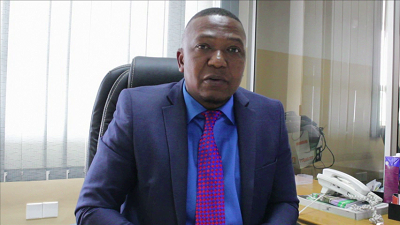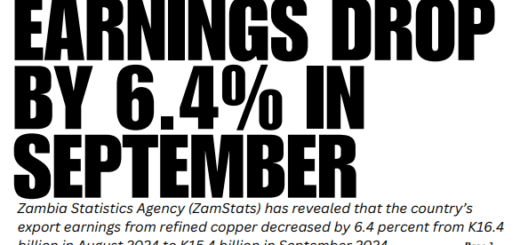ANDD Calls for Economic Indaba, GRZ Attributes Crisis to Drought
Advocates for National Democracy and Development (ANDD) has called for an Economic Indaba, in view of the recent downgrade of Zambia’s 2024 economic growth projection by the International Monetary Fund (IMF).
According to the IMF, the Zambian economy has been severely impacted by the prolonged power outages due to load shedding, which has notably hindered growth in the non-mining sector, therefore growth in 2024 is projected at 1.2 percent, from 2.3 percent previously.
ANDD Executive Director, Samuel Banda told Money FM News that there is urgent need to address the current economic challenges as the IMF’s growth projection is an indication that the economy is on a negative trajectory.
Mr. Banda stated that the IMF forecast underscores the urgent need for attention from both the government and patriotic citizens.

“The IMF’s assessment highlights the detrimental impact of drought on our domestic economy. We acknowledge that this drought has significantly hindered economic development activities. It has led to an energy crisis, severely affecting production in key sectors and impeding overall economic growth.”
“For example, load shedding has resulted in the collapse of many businesses, particularly SMEs, contributing to increased poverty and unemployment levels among Zambians,” Mr. Banda stated.
He noted that the energy crisis has escalated the cost of doing business, resulting in higher prices for basic commodities and an overall rise in the cost of living.
Mr. Banda said the elevated costs are barriers to economic growth, as they reduce the productivity of the private sector, which is vital for fostering development.”
“As ANDD, we believe that, in addition to the drought, several other economic challenges are impeding socioeconomic growth in our country.” Many of these challenges stem from the implementation of UPND government policies and economic fundamentals.”
“Key issues we have observed include low economic productivity, political instability, volatility in exchange rates, and a high inflation rate currently standing at approximately 15.6%. Additionally, the monetary policy rate of 13.5% remains excessively high, contributing to a lack of liquidity in the economy and limiting access to financial capital for business expansion,” he noted.
Mr. Banda emphasized that the Economic Indaba should therefore involve all stakeholders including the Church, Civil Society Organizations, development experts, political figures, the business community.
“At 60 years of Independence, Zambia cannot continue on this negative economic path. We must work together to address these pressing challenges. Zambia is endowed with vast natural resources that should drive our development.”
“We therefore urge the government to convene an economic indaba to collectively identify sound solutions that will transform our economy and improve living standards for all Zambians,” Mr. Banda emphasized.
And when contacted for a comment, Chief Government Spokesperson Cornelius Mweetwa acknowledged the IMF’s growth projections, emphasizing that the current economic situation is not as a result of management of the economy but the drought.
Mr. Mweetwa said if there was no drought, the country would not have been in any economic situation worth talking about.

“The issue which has affected the healthy economic outlook of the country is the drought which has led to national disaster and emergency situation.”
“So, unless there are measures that government is not putting in place that some people are aware of, we will be open to receiving such kind of measures, otherwise, the major challenge is not the management of the economy, the major challenge has to do with the drought,” Mr. Mweetwa emphasized.
He noted that President Hakainde Hichilema has initiated a robust response to the drought situation particularly in the energy sector.
“You have seen the polices that have been promulgated, in the national budget, there is zero rating of implements to do with solar, then the government has come up with Open Access Regime, allowing private sector players to construct mini grids to generate power for their use and the surplus sale to ZESCO. So those are measures that not too long from now are going to benefit the economy.”
“We are on course over the construction of Maamba Collieries Phase II 300MW of power, a number of solar grids are being earmarked for construction around the country. So, the pronouncements of the President over solar explosion are beginning to materialize in a more meaningful way and more investments are expected in that particular area,” he stated.








